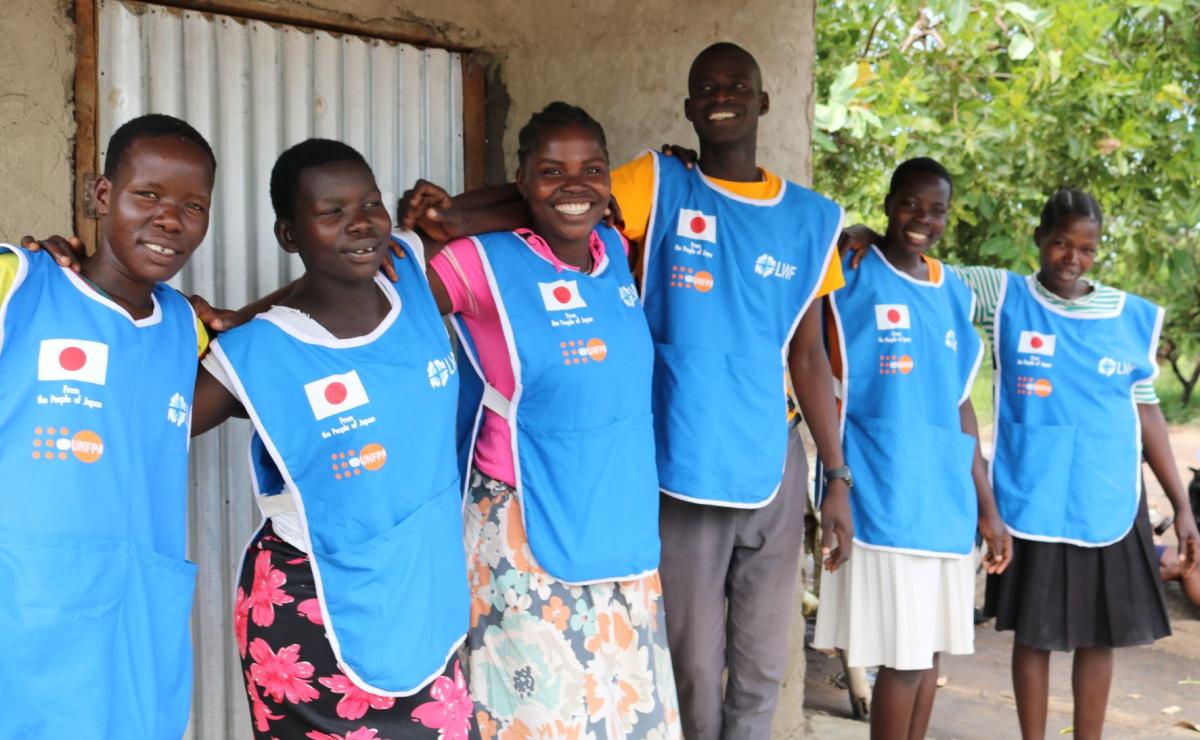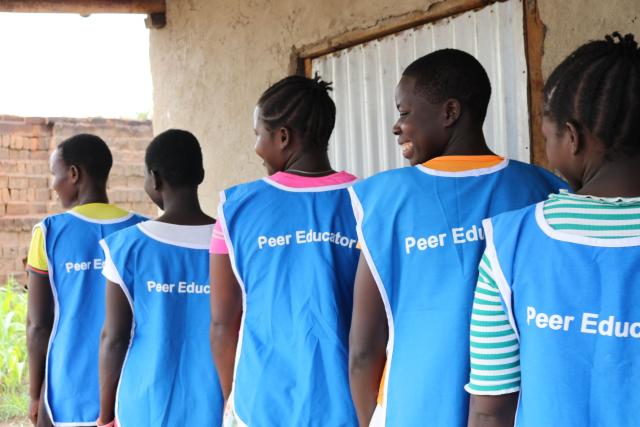Peer to peer model empowers young refugees to deal with trauma

Joan (not real name), a 22-year-old South Sudanese refugee in the Palabek settlement, is all smiling as she puts on her uniform ahead of her peer-to-peer session. We shall use a pseudo name given the sensitivity of her story. Joan is one of the peer educators who work with LWF and are provided branded bibs as uniforms to help them to stand out and get recognition for their service. “My friends call me a doctor,” Joan says while staring at her uniform in admiration. “I am proud to be a peer educator,” says the mother of one.
A peer educator is a role model who supports fellow young peo¬ple in the community who would otherwise find it hard to confide in elders about and seek advice on sexual reproductive health rights. As a peer educator, Joan shares a lot with girls, and the experience has improved her confidence when speaking to new people.
“I support vulnerable adolescent girls and boys to get knowledge on their sexuality and mental health,” she explains, noting that these have learnt to confide in her. However, it’s a symbiotic relationship as it also improves her mental health whenever she shares her ex¬perience with others. “Many of my agemates feel relieved on realising I have a worse story,” she reveals On the other hand, “Listening to worse stories from her peers has made me even stronger,” Joan states with a deep smile. She responds with happiness whenever she shares her work experience that has buried her misery. At her tender age, Joan has been through deeper waters.
“The worst thing happened to me at the age of 17,” Joan shares when her face changes to misery before she breaks down. “I was married and pregnant when the rebel broke into our house at night, “she says, “They raped me and chopped off my husband and brother’s heads.” Joan narrates her ordeal five years back when she left her home country. While in the settlement, Joan battled depression following the traumatic event when the community-based facilitators identified and linked her to peers, educators,

Whenever she talked to other peers of shared her story, it made her feel better. "This inspired me to open up and become a peer educator to inspire others and to use it as a positive coping mechanism. Owing to the traumatic conditions that force them out of their countries, many young adolescents use poor coping mechanisms like smoking and alcoholism to manage stress. Fortunately, learning from peers has proven to be a very effective learning method as they speak in a language with which every peer is familiar.
They are also not embarrassed discussing sensitive issues such as puberty, family planning, HIV and nutrition. For the last two years, she has been a peer educator; Joan says she has noticed other positive changes among the peers she has reached out. Daniel Onyango, another refugee in the Palabek settlement quit alcohol after he got support from the peer educators and has since become a peer educator too.
“This is the same thing that we want to carry back to South Sudan to talk to our peers and ensure that we have peace and harmony,” says the 20-year-old refugee from South Sudan.
LWF facilitates and trains peers to train others on substance abuse, post-abortion care, family planning referral, psychosocial support and teenage pregnancy through face-to-face and group sessions. The peer educator also encourages the girls to roll back to school.
-END-

